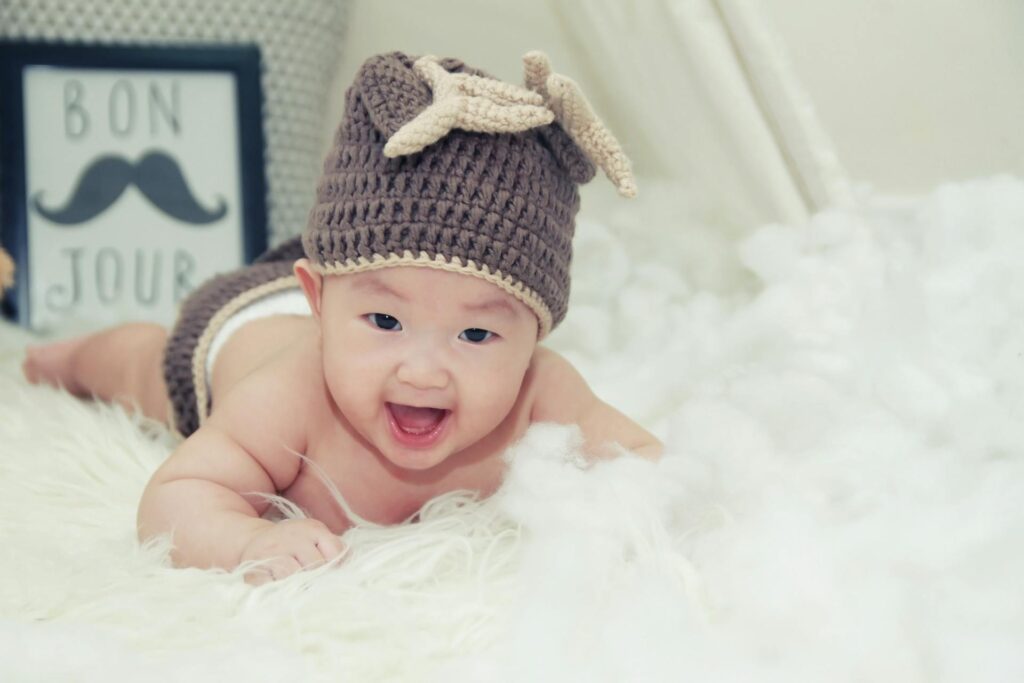One of the challenges that new parents have to face, teaching their baby how to stop pooping in pants, comes to mind. It is common to do this during early childhood but is necessary for them to transition from diapers to using the potty. It is a significant milestone for the baby. A successful transition requires patience, consistency, and understanding from both the parents and the child. Below, we will give you some strategies that you can apply to successfully pass this phase of your child’s life.
Recognizing the right timing
For potty training, timing is an important aspect. Most children are ready to get potty trained from around the age of 18 months to 3 years. Keep in mind every kid is different, and their readiness can vary from child to child. Signs that your child is ready to be potty trained include staying dry for longer periods, showing interest in adult bathroom habits, and communicating the need to go to the bathroom. If parents start pushing for potty training early, it could be frustrating for both the parents and the child. Just observe your child’s behavior and cues closely, and then once you are sure they are ready, it is time to begin the journey of pooping.
Establishing a routine
When it comes to potty training, consistency is the key. You need to establish a routine that helps them understand what and when it is expected of them. At regular intervals throughout the day, start taking them to the restroom, for example, after meals, before bedtime, and after waking up in the morning. Along with this, also encourage your child to use the potty when it looks like they need to go. Signs of the child needing to go to the bathroom include squatting, grunting, or holding their diaper area. The more consistently you react to these cues, the faster your child will learn to connect the feeling of needing to go with using the potty.
Using positive reinforcement
Positive reinforcement is a powerful tool in your arsenal when it comes to potty training. You need to celebrate their successes, no matter how small they seem to be. Give them praise, hugs, or small rewards when they find success. The small rewards could be a sticker, a favorite treat, or extra playtime. The key factor is to make the act of using the potty a positive experience so they feel motivated for it. That’s why, along with giving positive reinforcement, you need to avoid punishment and negative reactions when they have a failure of any kind. Remember, potty training is a learning process, and failure is part of this learning process. You need to respond with patience and understanding; it will help your child feel safe and secure as they learn.
Choosing the right potty training equipment
If you have the right equipment, it can make a big difference in how difficult it is to potty train your child. Consider buying a potty chair that is both comfortable and easy to use for your child. What is easy and comfortable may vary from child to child. Some prefer ones that are low on the ground; others might prefer ones that fit on the regular potty. So it would be better if you let your child have a say on which one they would like; this can help them feel more in control of the process. Along with the potty chair, you can get your child training pants. These pants are designed to provide a bit more protection than your regular underwear while still allowing them to feel wet, helping them learn to recognize the feeling of needing to go.

Encourage independence in potty training
As the child becomes more comfortable with using the potty, you can encourage them to be more responsible. This could be done by letting them pull down their pants, wiping themselves, and washing their hands afterward. By letting them be responsible and giving them these responsibilities, you make them feel more adult and capable; this will further boost their confidence and motivation. Also, they must learn these new skills. They may need help at first, but it is ok; over time they will learn to do it on their own, and your role would then be to provide guidance and support rather than doing everything for them.
Approaching nighttime potty training
Nighttime potty training is a completely different challenge than daytime potty training. Many children take longer to stay dry at night, so it is not unusual for the accidents to continue to happen in their pants during the night for months even though daytime training is very much complete. It would be helpful if you limited how much fluid they intake in the evening and allowed them to use the potty before going to bed. These will help your child stay dry at night. It would be wise if you put a waterproof mattress protector on their bed; it will make cleaning up much easier in case accidents do happen in their pants. Like with daytime training, you need to be patient and understanding, as achieving nighttime dryness takes a little more time.
Handling potty training setbacks
Potty training is not a linear process, and setbacks are very common. Your child might start having accidents in their pants right after a period of back-to-back success, or they might resist or stop using the potty altogether. You might feel frustrated but remain calm and patient. Your child might be stressed, tired, or overwhelmed with other changes in their life. In some cases, this can be interpreted as they are not yet ready for potty training. You can take a break and try again later if that keeps happening.
When to seek professional help
Most children with time will eventually learn to use the potty if you are patient and put in consistent effort. But if your child keeps having accidents even at the age of over four or they seem to struggle with potty training in a way that causes them a significant amount of stress and frustration, then it might be time to seek medical help from your child’s pediatrician or a child psychologist. Some people might have medical conditions such as constipation or urinary tract infections; these could make potty training more difficult. In such cases, guidance from a professional can help address the underlying issues that are plaguing your child’s potty training and provide strategies for successful potty training.
Conclusion
Potty training is a big development for a child’s life. It can be challenging, but it also allows bonding with your child. By understanding and taking appropriate action, you and your child can be successful. Be patient, supportive, and flexible, as it can be difficult for your child to learn this new skill.


